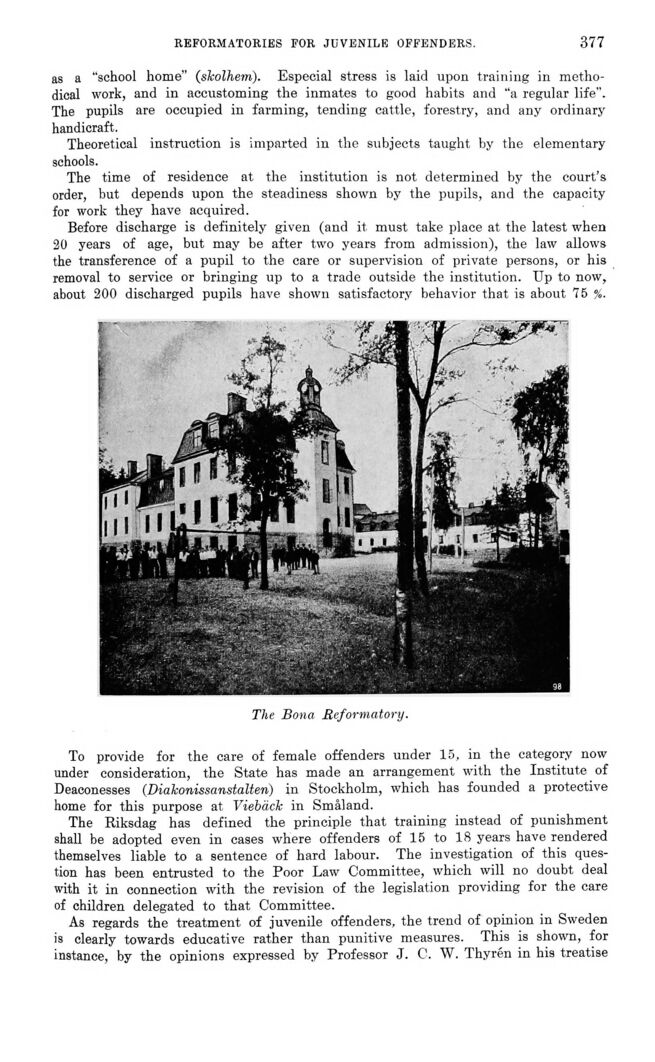
Full resolution (JPEG) - On this page / på denna sida - IV. Education and Mental Culture. Introd. by P. E. Lindström - 1. Elementary Education. By J. M. Ambrosius - Reformatories for Juvenile Offenders. By K. Blomquist

<< prev. page << föreg. sida << >> nästa sida >> next page >>
Below is the raw OCR text
from the above scanned image.
Do you see an error? Proofread the page now!
Här nedan syns maskintolkade texten från faksimilbilden ovan.
Ser du något fel? Korrekturläs sidan nu!
This page has never been proofread. / Denna sida har aldrig korrekturlästs.
reformatories for juvenile offenders.
377
as a "school home" (skolhem). Especial stress is laid upon training in
methodical work, and in accustoming the inmates to good habits and "a regular life".
The pupils are occupied in farming, tending cattle, forestry, and any ordinary
handicraft.
Theoretical instruction is imparted in the subjects taught by the elementary
schools.
The time of residence at the institution is not determined by the court’s
order, but depends upon the steadiness shown by the pupils, and the capacity
for work they have acquired.
Before discharge is definitely given (and it. must take place at the latest when
20 years of age, but may be after two years from admission), the law allows
the transference of a pupil to the care or supervision of private persons, or his
removal to service or bringing up to a trade outside the institution. Up to now,
about 200 discharged pupils have shown satisfactory behavior that is about 75 %.
The Bona Reformatory.
To provide for the care of female offenders under 15, in the category now
under consideration, the State has made an arrangement with the Institute of
Deaconesses (Diakonissanstalten) in Stockholm, which has founded a protective
home for this purpose at Viebäck in Småland.
The Riksdag has defined the principle that training instead of punishment
shall be adopted even in cases where offenders of 15 to 18 years have rendered
themselves liable to a sentence of hard labour. The investigation of this
question has been entrusted to the Poor Law Committee, which will no doubt deal
with it in connection with the revision of the legislation providing for the care
of children delegated to that Committee.
As regards the treatment of juvenile offenders, the trend of opinion in Sweden
is clearly towards educative rather than punitive measures. This is shown, for
instance, by the opinions expressed by Professor J. C. W. Thyrén in his treatise
<< prev. page << föreg. sida << >> nästa sida >> next page >>